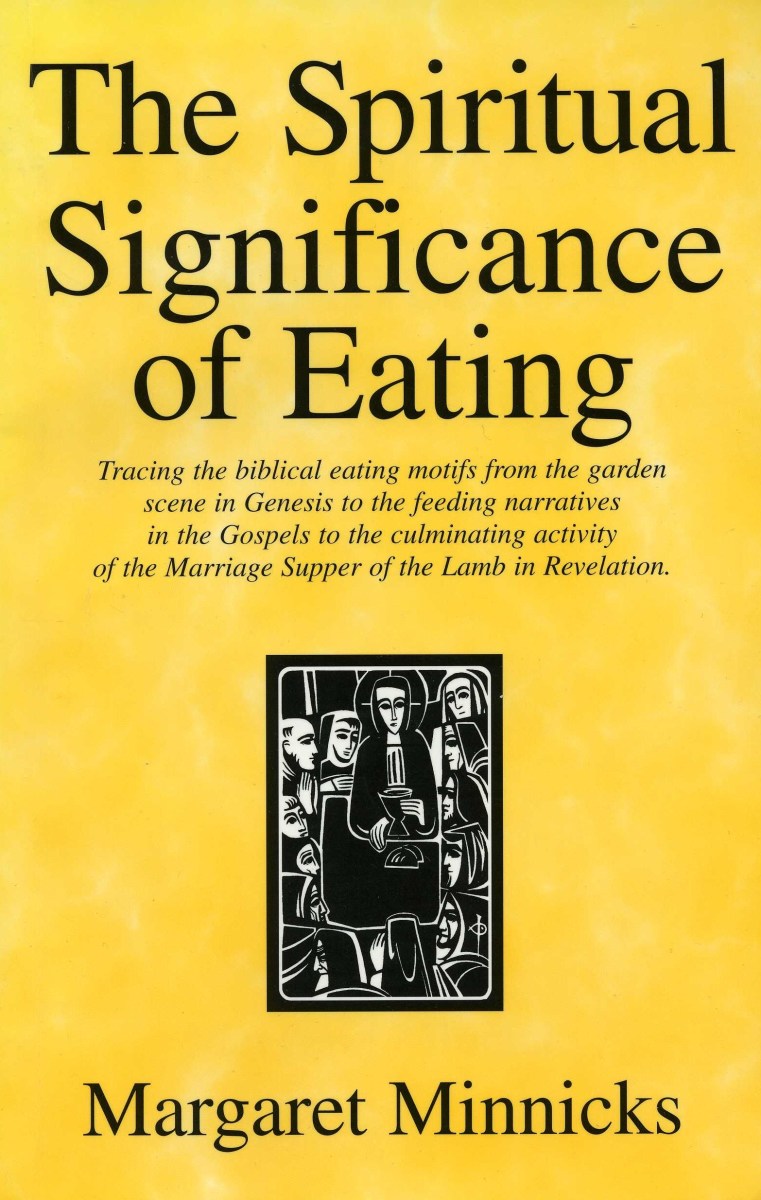Understanding Spirit Baptism and Fullness

A Second And Subsequent Experience Or An Initial And Continual Filling?
When does a believer receive the Holy Spirit? How do you distinguish between the filling of the Holy Spirit and the baptism of the Holy Spirit?
In this century, our valley has heard a rattling of bones from within the Body of Christ. Many Christians from the Charismatic Movement attest to having experienced a newness of liberty and love, a joy unspeakable and a peace incomparable, a keen sense of God’s presence in their midst and a fresh zeal for evangelism in the world. The movement has caused a stir and reopened the question of the role of the Holy Spirit in the Christian life with regards to the baptism of the Spirit, gifts, worship, and service.
Since we live in a very subjective age wherein many are “doing what is right in their own eyes,” it is necessary that we be able to determine the genuine from the counterfeit article (Judg 2:11). This is the difference between ‘momentary authenticity’ and ‘truly authentic living.’ The purpose of this essay is to examine the baptism of the Holy Spirit in connection with two doctrines: (1) The Charismatic doctrine of ‘Jesus plus’[i] which is bound by a sequential experience that they call ‘baptism of the Spirit,’ and (2) the doctrine of ‘the sufficiency of Christ’ which can seem to hinder a Christian’s growth into maturity for attaining the whole measure of the fullness of Christ (Gal 4:4; Eph 3:19; Col 1:19)
This hub’s specific aim is to answer three questions in light of the Old Testament’s expectation of the promise of the Spirit in the New Testament’s expression of the ‘baptism of the Spirit’: First, is the promised ‘gift’ of the Spirit in the NT? Second, what then is the difference between the Spirit’s ministry in the OT days and his ministry today? Third, what then did the apostles teach about when and how the Holy Spirit is received?
I will try to expound specific landmark passages in scripture in regards to this controversial subject. My objective is that we may grasp more clearly the greatness of our inheritance in Christ, the promise of the Father, in order that we may understand that we ourselves ‘have come to fullness of life in him’ (Col 2:10).
FIRST QUESTION: “Is the promised ‘gift’ of the Spirit in the OT the same as the ‘baptism of the Spirit’ in the NT?”
It is at this junction where two Christian camps differ. Some are under the conviction the ‘gift’ and the ‘baptism’ are two distinct blessings. Thus, they propagate a kind of ‘Jesus plus’ doctrine teaching that a sequential experience namely the ‘baptism of the Holy Spirit’ is a necessary act of completion in the Christian’s life. Those who differ believe that the two are one and the same event. All Christians who have been ‘baptized’ with the Spirit have ‘received’ the promised gift of the Spirit and the fullness thereof. This will be my position.
The development of the OT concept of the Spirit can be perceived as the Spirit of the living God: The Holy Spirit is God and therefore eternal. In the Old Testament times, he was perpetually active. We can trace the progression of the activity of the Spirit[ii] from a sporadic, selective and external activity culminating to the age of the Spirit:[iii] “His total pervasiveness both within God’s people and within created order.”[iv] This eschatological expectation of the OT prophets was realized through Jesus Christ as the “ministry of the Spirit” in the NT (2 Co 3:8).
This ‘outpouring’ or ‘baptism’ in the age of the Spirit was to be a distinct blessing upon God’s people. Isaiah, Ezekiel and Joel prophesied concerning this great outpouring: the spirit from on high is poured ‘upon us’ (Isa 32:15), poured upon ‘your descendants, and…your offspring’ (Isa 44:3), poured ‘upon the house of Israel…’ (Eze 39:28-29), and finally, poured upon ‘all flesh’ (Joel 2:28). John the Baptist, the last of this old prophetic order, points to the culmination of this long-awaited event, coming to pass in the Messiah himself:[v] ‘I have baptized you with water; but he will baptize you with the Holy Spirit’ (Mk 1:8).
It is important to note that the synoptic gospels record John’s prophecy, ‘He will baptize,’ as a simple future but the fourth gospel[vi] takes the form of a timeless present participle[vii] portraying Jesus as the baptizer of the Spirit. This characterizes his ministry as distinctive and continuing. In John 1:33, the words ho baptizon, in reference to Jesus, are the same words used by Mark to express the role of John the Baptist three times in his narrative (1:4; 6:14,24). Both John and Jesus are accorded the title ‘Baptist’ or ‘Baptizer’ due to the uniqueness of their ministries: the former was to baptize with water and the latter was to baptize with the Holy Spirit.
John’s baptism was a ‘baptism of repentance’ while Jesus’ baptism was two-fold: (1) As the ‘Lamb of God’ in John 1:29, it was the removal of the world’s sin, and (2) as the ‘baptizer of the Spirit’ in John 1:33, it was the bestowal of the Holy Spirit. Through the prophet Ezekiel, God promised: ‘I will sprinkle clean water upon you, and you shall be clean…I will put my spirit within you, and make you follow my statutes…’ (Eze 36:25,27). This one baptismal act in the New Testament cannot be separated. The prophesied ‘promise of the Father’[viii] (Lk 24:49) in the OT was realized in the ‘baptism of the Spirit’[ix] in the NT. Therefore, in order to fully comprehend Jesus’ teaching on the Spirit, we need to bear in mind that Jesus’ ministry followed that of John the Baptist: “The coming One’s baptism was in some sense a promise to those who accepted John’s baptism of repentance.”[x]
The moment a sinner repents and believes, Jesus not only saves this person from sin, but also baptizes the repentant sinner with the Spirit. The outpoured Spirit simultaneously accomplishes its two-fold work: to cleanse us and baptize us. This regeneration and renewal by the Spirit is an indivisible work of salvation. The ‘baptism’ or ‘gift’ is indeed a distinctive blessing in the age of the Spirit, bestowed upon believers by the Giver of Life, Jesus Christ.
SECOND QUESTION: “What then is the difference between the Spirit’s ministry in the OT days and his ministry today?”
“In the last days it will be, God declares, that I will pour out my Spirit upon all flesh” (Ac 2:17). Peter’s emphasis in Joel’s prophecy is on the universal recipients of the gift of the Spirit. The blessing is to be upon ‘all flesh’ or ‘all people’ irrespective of their outward status and privilege. No distinction shall be made in terms of sex, age, rank, or race. Sons and daughters, young men and old, men and maidservants, and “everyone who calls on the name of the Lord shall be saved” (Ac 2:21). “There will be an effusion of the Spirit in that age so that the people of God will experience the activity of the Spirit universally, permanently, and powerfully through inner, moral, and spiritual renewal.”[xi]
In the Old Testament era, the ministry of the Holy Spirit was localized and exclusive. The Spirit came upon a chosen few, for a select task at specific times in the life of God’s people Israel. But now, his ministry is far widened and deepened than ever before. In the age of the Spirit, it is universalized[xii] all-inclusive. In comparison to the experience of the OT saints, three differences stand out: (1) The blessing of the Spirit is poured on all believers of all flesh; (2) the indwelling of the Spirit is shared within the context of the new covenant and the kingdom of God, which was a prophesy and promise fulfilled in Christ; and (3) the work of the Spirit is related distinctly and essentially to Jesus. In conclusion to Peter’s great sermon (Ac 2:17-36), he assures his hearers that the gift of the Holy Spirit is the promise[xiii] for them and the generations to come and “for all who are far away” (Ac 2:39). Whoever receives the divine call upon his or her life inherits the divine promise. The believer enters into the full inheritance of this ‘gift’ or ‘promise’ of the Spirit.
So it came to pass that at the day of Pentecost, two separate companies of people received the ‘baptism’ or ‘gift’ of the Spirit: the 120 gathered in the house (Ac 2:2) at the beginning of the chapter and the 3,000 gathered from every nation under heaven living in Jerusalem (Ac 2:5) at the close. The 3,000 do not share in the miraculous phenomena experienced by the 120. The differences being that the 120 were already regenerate and received the promised gift of the Father (Ac 1:4) while waiting upon him. In contrast, the 3,000 unregenerate company of Gentiles simultaneously received the forgiveness of their sins and the gift of the Holy Spirit with no interval or separate event involved.
Understanding the two distinct meanings at the day of Pentecost would help alleviate much of the modern confusion: (1) The death, resurrection, and ascension was the final saving event of Jesus in order to become the exalted Lord of the Spirit, thereby fulfilling the promised outpouring and inauguration of the Messianic age; and (2) the appearance, address, and promise to the apostles in the upper room was the first special act of Jesus in order to equip them for their particular tasks as teachers of divine inspiration and authority. This final saving event and first special act of Jesus were two historical instances that are unusual and unrepeatable yet offer a blessing that is typical and available for all subsequent believers. We stand alongside the 3,000 who received the forgiveness of sins and the ‘gift’ or ‘baptism’ of the Holy Spirit together.[xiv]
THIRD QUESTION: “What then did the Apostles teach about when and how the Holy Spirit is received?”
As we read through the book of Acts and the Epistles, one fact clearly stands out: the possession of the Holy Spirit was of supreme importance to the first generation of believers. Receiving the ‘gift’ or ‘baptism’ of the Holy Spirit was the crux of the whole essence of salvation: “Anyone who does not have the Spirit of Christ does not belong to him” (Ro 8:9). The centrality of this event is emphatically stated throughout the NT (Ac 10:47; 11:17; 15:8; 19:21-22; Gal 3:2, cf. 3:14; Jude 19). Receiving the Holy Spirit was the central dream and desire of every believing Jew who looked forward to and longed for the coming age of the Spirit. The prophets who spoke of this grace that was to come “made careful search and inquiry, inquiring about the person or time that the Spirit of Christ within them indicated when it testified in advance…” (1 Pe 1:11).
It is important to note, that in Luke’s historical narrative of Acts, he does not enter into a technical discussion in terms of the significance or manner in which the promised ‘baptism in the Holy Spirit’ should be received. “No rigid pattern or formula is to be found in Acts concerning the order and conditions of the baptism in the Holy Spirit.”[xv] The NT records no concern for seeking any second, post-conversion experience.
In Corinthians 12:13, Paul writes, “For in the one Spirit we were all baptized into one body—Jews and Greeks, slaves or free—and we were all made to drink of one Spirit.” The apostle is underlining the shared experience of all Christian believers upon receiving the Holy Spirit. Paul can hardly be referring back to the day of Pentecost for neither he nor his readers were present on that inaugural occasion. Yet they are both partakers of the promise, which that blessed event made possible.
What is significant about this verse is the manner in which the words ‘all’ and ‘one’ is emphatically repeated: ‘all baptized,’ ‘all made to drink,’ and ‘in the one Spirit,’ ‘into one body,’ ‘of one Spirit.’ Paul sees the reception of the Spirit as universal to the Corinthian experience as they were ushered into the body of Christ.[xvi] This reception was not simply an acceptance of a divine fact, but a definite experience that drew all believers into the body of Christ. Therefore, the baptism of the Spirit in this verse, “far from being a dividing factor (some have it, other have not), is the great uniting factor (an experience we all had). It is not a post-conversion experience exclusively enjoyed by some Christians, but the common initial experience inclusively enjoyed and shared by all.
In conclusion, the general scriptural evidence we have gathered, that of Peter’s sermon in Acts 2 and Paul’s teaching in 1 Corinthians 12:13 in particular, demonstrate a distinctiveness in the blessing. Three things are indicated in the ‘gift’ or ‘baptism’ of the Spirit: (1) It is an identical blessing; (2) it is an initial blessing; and (3) it is a universal blessing.
Those Christians who are bound to the teaching of a ‘second and subsequent experience’ need to realize that Jesus, the exalted Lord of the Spirit, in whom “the whole fullness of deity dwells bodily” (Col 2:9), in fulfillment of God’s long-awaited promise of old, baptizes ‘all flesh’ with one Spirit into one body that we ourselves “have come to fullness in him” (Col 2:10). If the Father has given us his Son in all his fullness, and if his Son dwells within us by his Spirit, what more can the Father possibly add?
On the other hand, those Christians who hold to the doctrine of ‘the sufficiency of Christ’ and yet fall short of Christ’s standard, living sterile and static lives, need to realize that they are all ‘partakers of the Holy Spirit’ and “have tasted the heavenly gift, and have shared in the Holy Spirit…and the powers of the age to come” (Heb 6:4-5). They must leave the elementary teachings about Christ and go on to maturity: to live out in concrete realities of daily life what God has already made possible for us in Christ. In Ephesians 5:18, we are to be ‘filled with the Spirit.’ That is, the process of continuously and increasingly appropriating the filling of the Spirit in our daily lives or specific missions (Eph 3:19; 5:18; Php 1:11) so that we may together grow in faith, love, knowledge and holiness. Never once in the NT do the apostles exhort and instructs us to be ‘baptized in the Spirit’ (an initial blessing that we have all received at conversion), but to be ‘filled with the Spirit’ (a continual filling that we all need to receive for sanctification and service). Are we to grow in the body of Christ? Yes! Are we to add to the work of Christ? No!
Endnotes
[i] John R. W. Stott, Baptism and Fullness: The Work of the Holy Spirit Today (Guernsey: InterVarsity Press, 1987), 10. Stott cites the ‘Jesus plus’ doctrine some Christians hold wherein “you have to come to Jesus which is fine; but now, you need something extra to complete your initiation.”
[ii] Ibid., 22. The Holy Spirit is eternally engaged in divine activity. Stott speaks of the Spirit’s active role in the creation and preservation of the universe, in providence and revelation, in the regeneration of believers, and in the equipment of special people for special tasks.
[iii] Geoffrey W. Bromiley, The International Standard Bible Encyclopedia (Grand Rapids: Wm. B. Eerdmans Publishing Co., 1982), 732. Bromiley characterizes the uniqueness of this age in a three-fold way: first, in the figure of the coming Messianic “Man of the Spirit” (Dt 18:25; Isa 11:1-10; Da 7:13f.); second, the age to come is inaugurated by the “outpouring of the Spirit” (Isa 32:15; 44:3; Eze 39:29; Joel 2:28); and third, this age of the Spirit is to be marked by a deeper, inward spirituality as summed up in Isaiah’s and Jeremiah’s expectation of a new covenant (Isa 59:20f.; Jer 31:31-34; 32:37-40).
[iv] Ibid.
[v] George Eldon Ladd, A Theology of the New Testament (Grand Rapids: Wm. B. Eerdmans Publishing Co., 1974), 289. Ladd quotes the Johannine passage reflecting the gift of the Holy Spirit and the subsequent blessing to believers (Jn 7:38-39). Jesus is the source of living water. Those who partake of this ‘outpouring’ will never thirst and will themselves become sources of life.
[vi] Bromiley, 733. “The fourth gospel notes explicitly and forcefully what is only implicit in the synoptic gospels, that the Spirit not only comes upon Jesus, but remains there, thereby establishing Him as One who is characterized as ‘baptizer with the Holy Spirit’” (Jn 1:32f.).
[vii] Stott, 23. Stott notes that the timeless usage of the present participle helps us to see that Pentecost was not a single event, but the initiation and continuation of the distinctive ministry of Jesus: ‘This is the one who baptizes with the Holy Spirit.’
[viii] M. M. B. Turner, “Holy Spirit,” in Dictionary of Jesus and the Gospels, eds. Joel B. Green, Scott McKnight and I. Howard Marshall (Downers Grove: InterVarsity Press, 1992), 347. According to Turner, “Luke 24:49 (strong redactional in formulation) does not use the word Spirit at all, but the expression ‘the promise of the Father’ clearly refers to Joel’s promise through the verbal links Luke carefully establishes in Ac 1:8; 2:17; and 2:33. Though the activity of this gift will empower the mission of all nations, it is not to be thought of as a second blessing.”
[ix] Colin Brown, gen. ed., The New International Dictionary of the New Testament Theology, 4 vols. (Exeter: Paternoster Press, 1978), 699. Brown states that “there is no justification for the conclusion either that Luke ties the Spirit to baptism (as manifestly he does not in Acts 8:12ff. And 10:44ff.), or that he views the Spirit as a gift subsequent to conversion—for Luke, there is only one ‘gift of the Spirit’ and that clear-cut in its effects on the receiver.”
[x] Ibid., 695.
[xi] Bromiley, 732.
[xii] Ibid., 735. “Not a matter of another prophetic band, it was the coming of the Spirit ‘poured out upon all flesh’ with attendant evidence of the Spirit’s presence in terms of charismatic manifestations—visions, dreams, and prophecy—manifestations once restricted to a few but not universalized.”
[xiii] Stott, 28. “The promise of God is co-extensive with the call of God.”
[xiv] Ibid., 29. Stott reminds us that we need to be aware of the difference between the experiences of two companies involved in the second chapter of Acts. Since the experience of the 120 was in two distinct stages due to historical circumstances, the norm for us today must definitely be with the subsequent group. We also need to be mindful that not everything connected with the experiences of the 3,000 would be normative today.
[xv] Bromiley, 735.
[xvi] Ibid., 738. “For Paul, baptism by the exalted Jesus into the sphere of the Spirit is the basis both of diversity of manifestation of the Spirit and of a fundamental unity (1 Co 12”11).”
© 2009, Gicky Soriano. All rights reserved.
More Understanding Series:
- Understanding the Baptism in Water
What do you believe about water baptism? Do you believe that you receive salvation by being baptized or are you baptized because you have received salvation? Baptism itself belongs to the tradition of... - Understanding God's Blueprint for Marriage
Marriage is a divine institution, ordained and regulated by God’s word. It is found in every human culture. God formed humanity as male and female with the intent that a man leave his father and mother... - Understanding the Gifts of Healing
The biblical account of healing can answer many of our questions today. How much of what the bible is saying on this subject is clouded by our theological tradition? Is it possible to be healed from our... - Understanding the Faith that Works
In the letter of James we read, “For just as the body without the spirit is dead, so faith without works is also dead” (Jas 2:26). The Christian is exhorted to exercise a demonstrative faith that is... - Understanding Once Saved Always Saved
What is your belief on the eternal security of a Christian? Can Christians lose their salvation? Is it possible for a follower of Christ to be absolutely sure that he or she will be found in... - Understanding Spiritual Gifts Today
What is your belief relative to spiritual gifts? Do you believe all the spiritual gifts remain available today or do you believe that some gifts ceased with the apostolic era? The issue of whether or...
Recommended reading:









